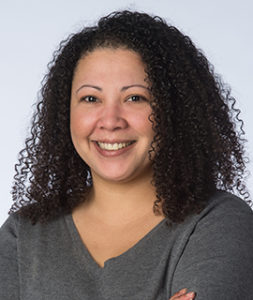
Labor shortages impact in-home senior care in Spokane County
Pair of providers identify solutions to address caregiver deficit

Nick Paul, franchise owner of Right at Home of Spokane, is undeterred by ongoing labor crisis as he expands to Spokane Valley.
| Erica BullockCurrent workforce trends for the in-home senior care industry show that severe shortages are likely to continue unless significant changes are made to recruit, train, compensate, and support caregivers, some providers here say.
An aging population, longer lifespans, and improved treatments to manage at-home care, together with retirements that are outpacing new hires, are contributing to the labor crisis, according to a workforce action report by the National Association for Home Care & Hospice and the Home Care Association of America.
Nick Paul, owner of Right at Home of Spokane, a franchisee of Omaha, Nebraska-based Right at Home, says the 29-year-old corporation has over 700 franchise locations and has revamped its franchise model to help improve workforce constraints.
The company has begun using psychological analysis to help determine the motivations of current and potential caregivers. New retention strategies are created based on one of five caregiver personality types, he says.
"It's very in-depth and you get every detail," says Paul. "We're able to pivot and change our focus to (understand) how to talk to caregivers and how to retain them."
Offering market-rate wages is another way in-home care providers are attracting new hires, Paul says.
Washington state's minimum wage is $16.28 per hour, and Right at Home of Spokane pays a higher hourly wage for entry-level workers, Paul says.
"Someone who's never had any experience could start out at $25 an hour (in some companies)," he asserts. "That's the market rate that everybody's offering right now. If you want to hire the best then you've got to give them the best. If I don't ... another agency is going to."
Home care refers to nonmedical care including companionship, assistance with daily activities, light housekeeping, and transportation, says Paul.
Senior Helpers of Spokane franchisee owner Tiffany Murphy says the industry is facing additional hurdles to improve labor issues from Washington state.
Even though medical care isn't provided by in-home caregivers, Murphy says Washington state requires workers to be certified with the Department of Health.
Unfortunately, she says that training and exam fees required for certification are putting off many potential applicants and as a result, Senior Helpers has had to think outside of the box to overcome certification challenges.
"It's always the same. We're always hiring," Murphy says. "It's just really hard to hire, so we try our best to retain (caregivers)."
In 2022, caregiver turnover increased about 18% across the entire U.S. market, to 77.1%, says Murphy, referencing data from Home Care Pulse's annual Benchmarking Report.
To combat labor issues, Murphy says her workforce strategy is to operate as a community instructor for the state's home care aid certification program and to pay the registration fees to certify Senior Helpers' caregivers.
"You have to take a 75-hour class within 200 days and then pay a testing fee, so it gets expensive," explains Murphy. "If they don't complete their training after 120 days, we're legally obligated to terminate them though."
Another option for some in-home care providers, such as Senior Helpers, is to adopt new technologies that can help ease caregivers' workloads, notes Murphy.
At Senior Helpers, caregivers can use passive monitoring systems, such as StackCare and Sensi.Ai, that use artificial intelligence to supplement care.
After establishing a baseline for patterns of behavior, the systems use either audio or motion activation to detect changes in functional and cognitive status and other factors relating to a client's well-being, and then notify the agency if any anomalies occur, she explains.
Despite the many industry challenges, Paul envisions Right at Home of Spokane as an emerging market leader in Spokane County in the next five years due to continued strong demand.
The Spokane franchisee is currently expanding its territory coverage to include the city of Spokane Valley, says Paul.
"We were growing pretty rapidly during the first three years," Paul says of the franchise he opened in April 2021. "It only makes sense for me to expand. Seniors will always need in-home care."
JNM Compassion Health Care Inc., which does business as Right at Home of Spokane, will need to hire 15 to 20 caregivers by the end of the year to support the expansion.
A critically low workforce, however, may limit how far the business can actually grow.
Right at Home of Spokane currently has a staff of 30—80% of whom are caregivers—who provide services for about 60 clients located throughout Spokane County.
He declines to disclose Right at Home of Spokane's annual revenue.
The Spokane franchisee has previously expanded from a 700-square-foot office to a 1,500-square-foot office suite at the Tapio Office Center's Turquoise Flag building, at 104 S. Freya, in East Central Spokane.
Paul is eyeing North Idaho and Tri-Cities, Washington, as the next steps in his mission to become a leading regional senior in-home care provider, he says.
Paul immigrated to the U.S. from Malaysia 25 years ago and graduated with a degree in business management from Walla Walla University. He opened the Spokane franchise after a 20-year career in finance and accounting. After two decades working behind the scenes supporting back-end operations for other companies and nonprofits, he decided to pursue his dream of owning a business.
Before opening Right at Home of Spokane, Paul worked as an accountant at The NATIVE Project, where he found a connection between his entrepreneurial goals and community health care, he says.
"Home care is still very personal with our clients and even our community partners, which is the beauty of this business," says Paul. "That's one reason why I like what I do so much; it's that human connection."



_web.jpg?1732178234)

